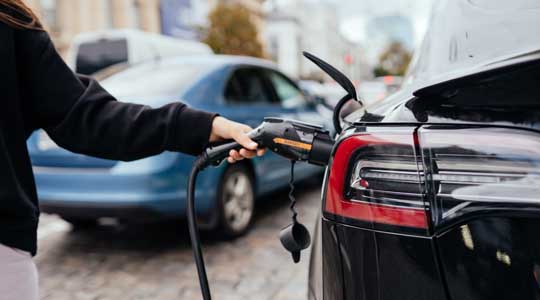As India is still in the starting stages of the EV revolution, the adoption and number of EVs sold is rising faster with every passing day. EVs are the future’s transportation and are no longer an exclusive option for early adopters. EVs are already one of the fastest-growing vehicle markets. As governments implement various incentives and programs to push the sale of EVs that strong growth rate is expected to continue further.The technologies that are driving the Electric Vehicle revolution are becoming more precise, with a focus on decreasing prices and increasing manufacturing efficiency while continuing to raise performance. Priorities include reducing charging times and increasing battery and motor capabilities to fulfill drivers’ speed, torque, range, and reliability requirements.
Electric vehicles (EVs) have come out as a ray of hope for the global community. Promising to abolish the need for conventional fossil-fuel vehicles, Electric Vehicles are expected to make our world less polluted and eventually help in achieving zero emissions in the next 40 years from now. Although, if that needs to happen, there is a need to bring about a lot of diversity and innovation in the electric mobility area. If we see the numbers, India has recorded a 333% year-on-year growth in Electric Vehicle sales, and this is when we have been coming out of a destructive pandemic. This speaks amply of the public interest and willingness to accept Electric Vehicles as long as the new shape of mobility addresses the needs of the masses. There are several key areas that need to be examined if India is to realise its true potential of becoming a $200 billion-plus EV market by 2030 and emerge as a worldwide exporter of clean transportation solutions.
Smaller charging times are a critical supporter of increased EV adoption, encouraging the development of high-current charging infrastructure and high-voltage Drivers will spend less time waiting at charging stations as charging becomes faster and safer. The difficulty for EV designers is to make sure that their vehicles are efficient in dealing with the challenges of ultrafast charging. From the charging inlet to the connections, battery, and wiring, contactors, every element must be built to withstand the greater temperatures associated with high-voltage and fast charging.
One of the main reasons why Electric Vehicles are already not a popular mode of commute is actually the challenge of charging these vehicles. You just fill the tank and drive off for hundreds of km because the ICE vehicles are plug-and-play. When the fuel gets empty, you go to fill the tank refilled immediately at the petrol bunk. And on the other hand, Electric Vehicles need to be charged for hours, and once a vehicle runs out of charging, it is pretty much out of use for the day because it will take many hours to charge it again. To make Electric Vehicles successful and popular, manufacturers need to find ways to charge the vehicles easily. Development and Innovations of fast chargers that can rotate the long hours into around the same time that the food/grocery delivery apps take are needed. Promote battery swapping is one of the ways to do this. However, that also needs a policy framework, a lot of clarity, and standardization of tech to become universal.
Battery chemistry is the other key concern. In recent times, we have seen Electric Vehicles catch fire, and batteries run out very fast. The development of battery tech has not kept pace with EV tech improvements. Battery manufacturers are still in look to fully embrace Lithium-ion tech. On the other side, there is a rising demand for better, easily changeable safer, and more suitable tech such as aluminium–solid fuel cells,graphite and others.
We have seen Electric Vehicles not just as vehicles that run on clean tech, but as the most modern tech in terms of mobility. Integrated AI, digital components, and IoT have already made driverless vehicles a reality in the western side of the world, and future mega markets such as India need to get on to the automation trends. Driverless cars can not only make long-distance trips more pleasant by eliminating driver tiredness and the risks it poses, but they also make mobility possible for those who are facing physical challenges. Autonomous vehicles will enable people with disabilities to commute with confidence and without depending on others.
The rapid adoption of Electric Vehicles was supported and driven by central and state government schemes offering EV manufacturers from PLIs, battery makers and the consumer. While the Indian EV industry is facing its own set of obstacles in the form of poor charging infrastructure, rising costs, and Electric Vehicles being priced higher than their fossil fuel equivalent. After all these challenges, the adoption of Electric Vehicles has been growing, at a steady rate with more than 4 lakhs, EVs sold in the recent year.

The coming decade is going to be extensive with Electric Vehicle innovations that will skyrocket the Indian EV industry to greater heights. Manufacturing companies are managing their energies towards electrifying their vehicles, moving away from conventional fossil fuel automobiles. Though it is still in the developing stages, there is no shadow of a doubt that the Indian EV industry will reach extremely higher level in the next few years.












